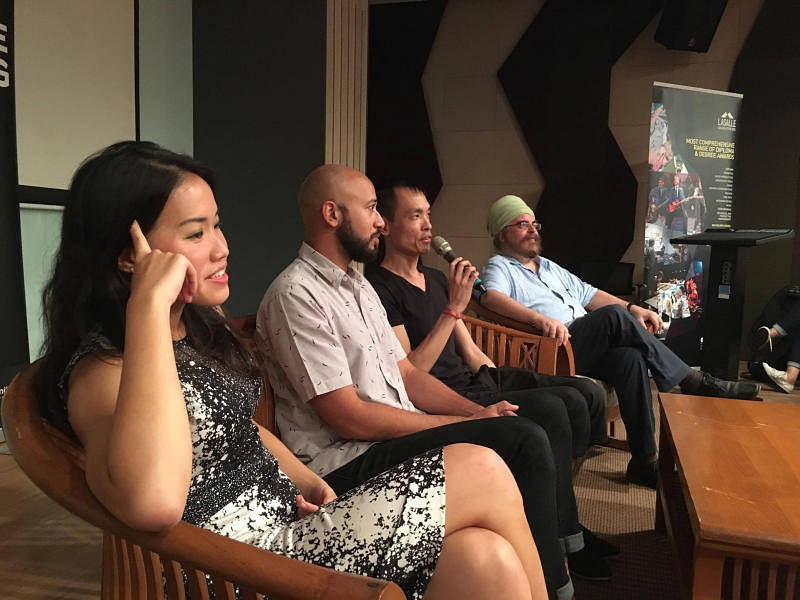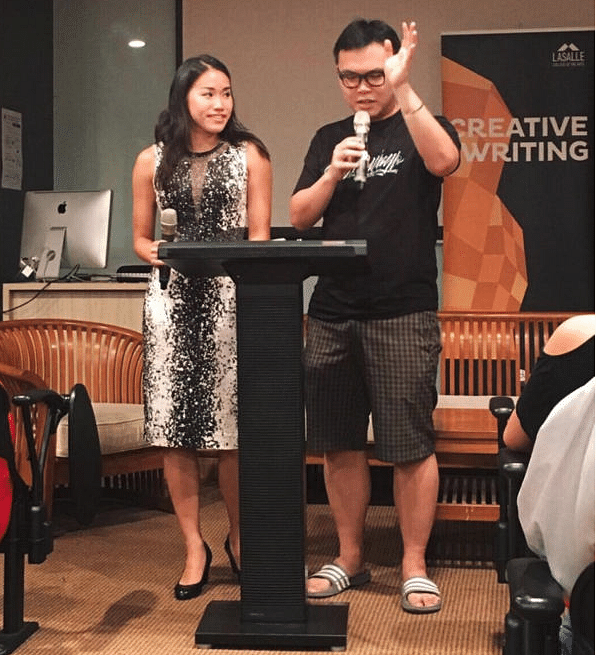I used to decline after-work invitations to events, preferring to spend such down time only with family members or close friends.
As someone on the cusp of 50, with a chequered health history and indifferent stamina, I've long realised my own scarcest, most valuable resource is not just time, but energy.
Energy is time condensed by your ability to pay attention. You may have three hours after work to spend; but if you lack the energy to pay attention to a serious lecture on climate change, you're not going to get anything out of the event. Best to conserve energy and stay home.
That rubric has served me well enough to keep me going in a job that I find exhilarating but often exhausting. I cope in part by limiting energy spent on non-core events.
Recently, though, I've been having a re-think, and selectively going for weekday evening and weekend events. I've found to my surprise that such activities don't always tire me out; sometimes they make me energised to go to work the next day.
A recent survey by two researchers published in The Straits Times this week suggests that's the right approach to take.
The researchers tracked 84 people, measuring their well-being and recovery through daily diaries. Does choice of evening activity affect recovery for work the next day?
It wasn't those who went home to chill and watch Netflix who recovered best for the next day.
Instead, it was those who chose a pleasurable activity to do, who showed better recovery the next day, throughout the day.
Their advice: "When people choose an evening activity - for example, playing sport, having a massage or learning to cook - they should look for something that brings them pleasure to help them recover. This is potentially because a pleasurable activity can enhance the production of hormones in the brain's 'pleasure reward' system to regulate the stress response and promote recovery.
"We also found that the pleasure which employees experienced not only helped them recover that evening - its beneficial effects also continued into the next working day. This was an important finding as the ultimate aim of recovery is to help employees tackle the demands of the next working day in an optimally recovered state."
The day that article was published on The Straits Times' website, on Wednesday, Sept 27, I took its advice - I spent the evening at a poetry reading event at LASALLE College of the Arts.

I went with my 21-year-old niece Joanne and 68-year old friend Irene. The evening began with an inter-generational chit-chat about the last time all three of us had met together - an era and world away, in Boston, where I was recovering from cancer surgery, and the strapping Joanne now towering over Irene was so small "I could have tossed you out to sea" when they went whale-spotting at the harbour, recalled Irene.
For nearly two hours, we were lost in a world of words and imagination and good-natured fun. The event was titled Sing It! Singapore's All-Star Poetry Reading. It featured poets reading from their extant and new works.
Darryl Whetter, programme leader of the Creative Writing MA programme at LaSalle, led the evening with his reading of densely-imaged poetry on his native Canada.
Then Singapore Literature Prize-winning poet Joshua Ip declaimed from some works. I enjoyed a lively poem on dragon playgrounds in Singapore; and a piece performed with Amanda Chong on the recent reserved presidential election.
Not content with dramatising the verse in spoken word, he next launched into a melody, offering snatches of songs that will be used in a new musical on William Farquhar which he is co-writing with Marc Nair, who also performed at the event.
Major-General Farquhar was the first British Resident and Commandant of Singapore, and assistant to Sir Stamford Raffles.
While Raffles' name resounds in Singapore as the "founder" of the British colony that has become a modern metropolis, in fact it was Farquhar who lived in Singapore and administered the island.
Records suggest Raffles was present in Singapore only on "three occasions over five years, from January to February 1819, May to June 1819, and October 1822 to June 1823 - altogether for a total of less than 10 months."
Farquhar's role in Singapore history is ripe for a re-interpretation, especially in the months leading to 2019, the 200th anniversary of Singapore's "founding" in 1819.

Amanda Chong, a lawyer by day and a poet during her lunch breaks, read from her poetry, which is witty and replete with gender themes.
Marc Nair's voice glided, leapt and slid through the air like the fish his poem described.
Chris Mooney-Singh's mellifluous voice channelled the many characters his poetry depicted.
Two-times Singapore Literature Prize-winning poet Cyril Wong is a graceful slip of a man, with a quiet air about him. He reads his poetry without drama, like he's just talking to you. But when he reads, the words sent tingles down my spine. His performance made one participant confess he "peed in his pants".
Remarking on the event, Darryl said: "Poetry is so flagrantly vibrant here in Singapore."
We have an active poetry performance scene. Chris for example, is the founder and host of Poetry Slam Singapore, a series of poetry performances currently hosted at Blu Jazz cafe.
Charities like the Sing Lit Station have a wealth of literary events, including an intriguing body slam poetry event next weekend, promising what it calls "our world-first pro-wrestling/spoken word showcase".
Wrestling and poetry reading. Can you imagine it? I can't quite. To find out, details are here.
Added Darryl: "I've been writing professionally for more than 20 years and have published in my native Canada as well as the US, Germany, France and India. I've never seen a more vibrant poetry market in the English-speaking world than here in Singapore. "
The poetry high lasted all week for me. I was surprised at how engaging and entertaining an evening of poetry reading could be. The last time I attended one was in Cambridge, when my then-favourite English poet read from his works. It was a dismal evening; both by weather and entertainment value. The poet was often dubbed the greatest in the English language, but boy, was he a poor performer; he looked down at his text and mumbled, seemingly oblivious to the small audience that included two young Chinese Singaporean women and a few tweeded elderly.
I was turned off by poetry reading for years, and so went to this week's event with rather low expectations. I am happy the event turned out to be so much fun.
I've long read and loved poetry on the page. I've now had my maiden exposure to a poetry slam event and already, I know, it will be the beginning of a beautiful friendship.


